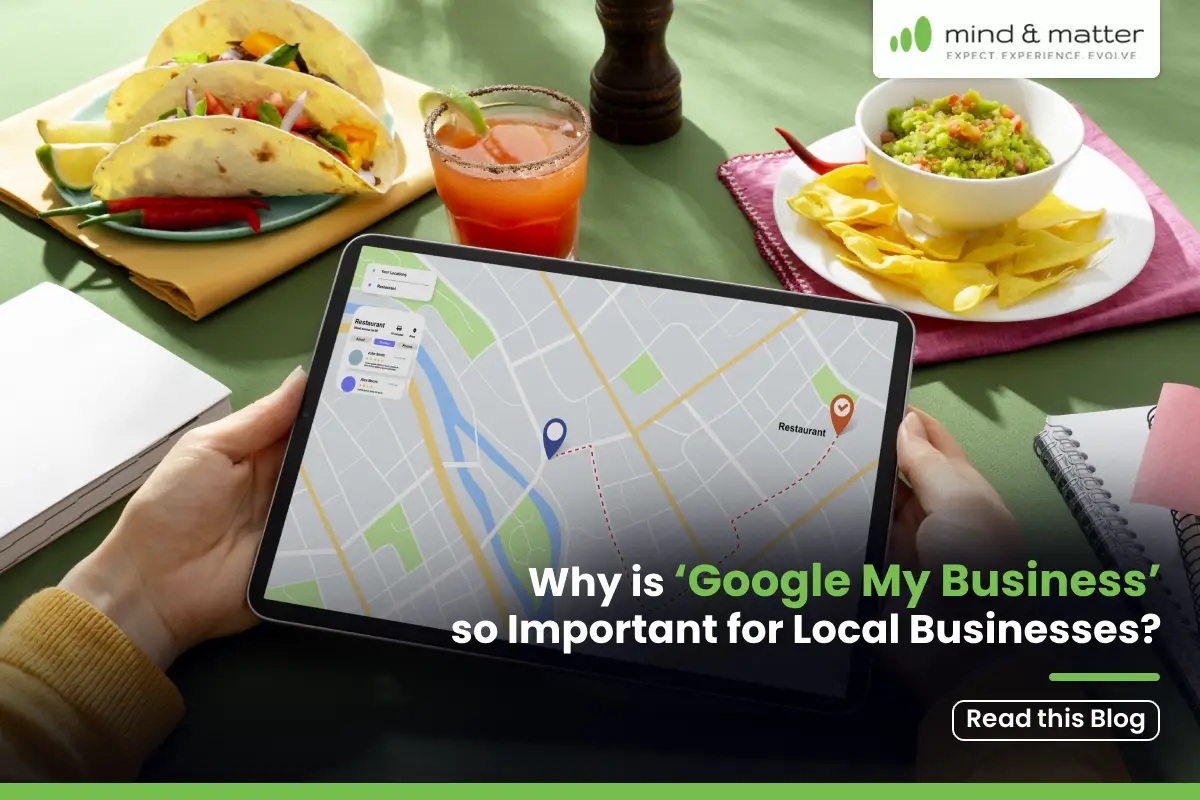Building a strong online presence is key in today’s digital world, and SEO (Search Engine Optimization) is a powerful tool to achieve this. Optimizing your website as well as the content can help you rank higher in search engine results. You can also attract potential customers who are actively searching for products or services like yours.
SEO is the most cost-effective strategy that delivers long-term benefits, making it a valuable addition to any organization’s marketing strategy.
The SEO landscape is constantly evolving, so staying up-to-date on best practices is crucial for a website’s success.
In this article, we will dive into the most common SEO mistakes to avoid in 2024 to ensure your website remains visible and attracts organic traffic. Whether you have multiple businesses or just starting your business in the UK, this guide will equip you with the knowledge to stay ahead of the curve.
Top Most Common SEO Mistakes, You Should Avoid in 2024
1. Not Optimizing Your Website for Mobile:
Gone are the days of desktop-first web design. It is 2024, and if you are unaware, a mobile-friendly website is an absolute necessity. With the majority of web searches now conducted on smartphones, a site that is not optimized for mobile is missing out on a huge chunk of potential traffic.
To stay competitive, ensure your website utilizes responsive designs, seamlessly adjusting its layout for any screen size. Additionally, prioritize page speed as slow loading times can frustrate users and hurt your ranking in search engine results pages (SERPs).
2. Not Thinking About Website Speed:
As mentioned above, in the age of instant gratification, website speed is no longer a luxury, it is a necessity. Search engines prioritize fast-loading websites, as they deliver a superior user experience. Aim for a lightning-fast load time (ideally under 5 seconds) to keep visitors engaged and search engines happy.
Here’s how to optimize your website for speed:
- Image Compression: Compress images without sacrificing quality. Use modern formats like WebP or AVIF.
- Minification: Minimize code in CSS, JavaScript, and HTML to reduce file size.
- Content Delivery Network (CDN): Utilize a CDN to deliver website content from geographically distributed servers, minimizing load times for global users.
3. Not Using Search Engine Analytics Tools:
Search engine analytics tools are essential for understanding your website’s visibility and performance in search results. While Google Analytics is a popular choice, do not neglect competitor engines like Yahoo and Bing. Each offers its analytics suite, providing valuable insights into your website’s ranking and user behaviour on those platforms.
Why use these native tools? They offer the most accurate data specific to each search engine’s ranking algorithms. Analyzing data from various engines can help you refine your SEO strategy and target a wider audience.
For example, you can identify underperforming pages across different search engines and prioritize on website optimization. Analytics tools can also reveal competitor strategies, but avoid unethical practices like keyword scraping. Focus on delivering high-quality content that addresses user needs.
4. Publishing Unhelpful & Plagiarized Content:
Content is vital in SEO. Websites are ranked higher when there is informative and valuable content. Thin and Unhelpful content (Check Out Google Algorithm Update March), especially on product and service pages, is a common mistake. Informative content educates visitors, assures them they have reached the right place, and improves website SEO and inbound traffic.
Another culprit? Duplicate content. Many new business owners and founders in the UK make the mistake of using plagiarized content. This may happen unintentionally. Many web and app developers are unaware of the SEO impact this may have on the website. Search engines do penalize websites with thin, scraped, or low-value content. To avoid this, prioritize well-researched and in-depth content that establishes your expertise and satisfies user intent.
5. Not Updating Your Old and Outdated Content:
Content is the core of any website. While evergreen content is valuable, neglecting to update your website in a forever-evolving digital landscape, can negatively impact your ranking.
Search engines favour sites that demonstrate fresh content and engagement. Regularly revisit your existing content to ensure it remains accurate, reflects current trends, and addresses evolving user needs.
6. Under-optimized Meta Tags:
Meta tags act as signposts for search engines, helping them understand your content’s purpose and structure. Key meta tags include title tags, meta descriptions, and heading tags.
- Meta Title: This is your web page’s headline displayed in search results. Optimize your title tag for clicks and rankings by including relevant keywords and crafting compelling language that entices users to visit your site. Google may generate a title if one isn’t provided, so take control and create an effective title yourself.
- Meta Description: This concise summary appears below your title tag in search results. It is a chance to further explain your content and encourage clicks. Include relevant keywords naturally and highlight what users can expect from your page.
- Heading Tags (H1-H6): These structured tags break down your content into sections, improving readability for users and search engines alike. H1 is the most important heading, typically used for your main page title. H2 and H3 tags further organize your content into subheadings. Use keywords strategically within headings, but prioritize clarity and user experience over keyword stuffing.
A common mistake is neglecting meta tags or using them very poorly. By crafting compelling title tags, informative descriptions, and well-structured headings, you can significantly enhance your website’s SEO performance.
7. Over-Optimizing Anchor Text:
Keyword stuffing in anchor text is a relic of the past. In 2024, a natural link profile with diverse anchor texts is key. This means avoiding an overreliance on exact-match keywords and incorporating branded terms, generic phrases, and natural language variations. A balanced mix signals legitimacy to search engines and avoids potential penalties.
Prioritize informative anchor text that enriches the user experience. Do not just use keywords for the sake of SEO. Additionally, focus on acquiring backlinks from high-quality, relevant websites within your niche. These trustworthy sources add credibility and contribute to a strong SEO strategy.
8. Poor keywords Research Strategy:
A successful SEO strategy hinges on smart keyword research. You have to balance between high-volume and low-competition keywords. High-competition keywords offer significant traffic potential, but ranking for them can be an uphill battle. Conversely, low-competition keywords are easier to rank for but may drive less traffic.
The key is to incorporate both. Start with low-competition (Long Tail Keywords) keywords to gain traction and build your website’s domain authority. As your authority grows, gradually integrate high-competition keywords into your strategy. This layered approach ensures a steady flow of organic traffic while positioning you for future growth in competitive SERPs.
9. Not Focusing on Local SEO
In today’s digital landscape, neglecting local SEO in the UK is a missed opportunity for many businesses. Local SEO tailors your website to attract customers within your vicinity. By optimizing your content with location-specific keywords and ensuring your business details are consistent across local directories like Google My Business and Bing Places for Business, you can significantly boost your local online presence.
The benefits? Increased website traffic from geographically relevant searches, potentially converting into local customers. Do not miss out on this valuable strategy – take steps to optimize your website for local SEO and watch your local customer base flourish.
10. Focusing On Backlinks Quantity, Not Quality:
Backlinks remain a crucial factor in SEO, influencing your website’s visibility and ranking in search results (SERPs). However, quality trumps quantity. Earning backlinks from high-quality, relevant websites is far more valuable than a mass of links from low-reputation sources. Spammy backlinks can harm your ranking very badly.
Focus on building a natural backlink profile. This means acquiring links from authoritative websites in your niche, with relevant anchor text that accurately describes the content being linked to. Not only does this enhance your SEO, but it also signals trust and credibility to users.
11. Not using Search Console & Microsoft Clarity Data:
Google Search Console (GSC) is a treasure trove of SEO insights, just like Google Analytics. This free tool unveils valuable data on clicks, top-performing pages, ranking keywords, website errors, and even spam-type backlinks. Additionally, it analyzes your Core Web Vitals – metrics that measure user experience.
Similarly, Microsoft Clarity is another key free SEO insights tool that will help you to understand your website visitor data visually.
Leveraging this data is key to optimizing your website and SEO strategy. However, a common misstep is neglecting GSC or Clarity after setup. Do not just check clicks and impressions. Dive deeper to identify areas for improvement and opportunities to climb the SERPs. Utilize GSC & Clarity to its full potential and watch your SEO improve.
12. Ignoring Social Media Signals For SEO:
While social media shares and interactions do not directly translate into SEO ranking factors, they should never be ignored. A strong social media presence can indirectly benefit your SEO by:
- Boosting Brand Awareness: Increased social media visibility gets your brand noticed by a wider audience, potentially leading to more website visits and organic searches.
- Encouraging Content Sharing: Engaging social media content gets shared, driving more traffic back to your website. High-quality content shared organically is a positive signal for search engines.
- Building Relationships and Trust: Social media allows for direct interaction with your audience, fostering trust and brand loyalty. Search engines may consider user engagement metrics as a trust indicator.
Focus on creating valuable, shareable content and interacting with your audience on social media marketing platforms. While not a direct ranking factor, a strong social media presence can contribute to a well-rounded SEO strategy.
13. Not Updating Sitemap More Often:
Think of a sitemap as a blueprint for search engines. It lists all the pages on your website, making it easier for search engine crawlers to discover and index your content. This is crucial for ensuring your website’s visibility in search results.
Here’s why keeping your sitemap updated is essential:
- Improved Crawling: A fresh sitemap allows search engines to efficiently find new and updated content on your website.
- Better Indexing: Search engines can more effectively index your website’s pages, increasing the likelihood of them appearing in search results.
Remember to update your sitemap whenever you add new content, make significant changes, or remove outdated pages. This ensures search engines have the most accurate information about your website, leading to better SEO performance.
14. Ignoring Your Brand Searches:
Brand searches are a goldmine for SEO. It is a chance to capture highly targeted traffic from users already familiar with your brand or products. By optimizing brand searches, you can ensure users land on the most relevant pages on your website.
Here’s how to leverage brand searches for SEO success:
- Claim and optimize your Google My Business listing and social media profiles. This ensures your brand information appears prominently in search results.
- Consistently create high-quality content that reinforces your brand identity. This includes blog posts, product descriptions, and informative articles related to your industry.
- Encourage customer reviews and testimonials. Positive user feedback builds trust and can influence search engine algorithms.
- Monitor brand mentions online. Respond to comments and engage with your audience to solidify your brand presence.
By implementing these strategies, you can turn brand searches into a powerful SEO weapon, attracting qualified leads and boosting website traffic.
15. Not Having A Proper SEO Strategy in 2024
To repeat this crucial fact, today’s digital landscape requires a well-defined SEO strategy. It is the lifeblood of any website’s online success. Without a proper roadmap, navigating the ever-changing SEO landscape can be frustrating, and achieving visibility becomes an uphill battle.
An SEO strategy acts as your blueprint, encompassing crucial elements like keyword research, on-page optimization, link building, and content marketing. By carefully considering each of these, you create a holistic approach that maximizes your website’s potential.
Remember, SEO is a marathon, not a sprint. Search engine algorithms are constantly evolving, so be prepared to adapt and refresh your strategy regularly. Regularly reviewing your SEO performance will allow you to identify areas for improvement and capitalize on emerging trends.
Wrapping Up
By staying ahead of these common SEO pitfalls, you will pave the way for a thriving online presence in 2024. Remember, SEO is an ongoing process. By focusing on a balanced keyword strategy, acquiring high-quality backlinks, maintaining a healthy website, and capitalizing on brand awareness, you can attract more organic traffic and achieve long-term SEO success.
Even though these are not the complete list of common SEO mistakes, keeping an eye on these mistakes will help you improve your search presence. You can also hire a Top SEO agency like Mind & Matter to understand the mistakes and get an advanced SEO strategy for your website in the UK and beyond.















